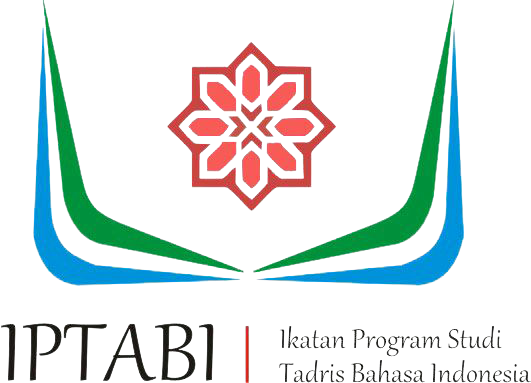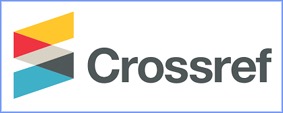Peningkatan Kemampuan Menulis Menggunakan Metode Sugestopedia pada Mahasiswa Program Studi Pendidikan Bahasa Indonesia Fakultas Keguruan dan Ilmu Pendidikan Universitas Bengkulu
DOI:
https://doi.org/10.29240/estetik.v2i01.892Abstract
Abstract: The Purpose of this study was to improve the writing skills of class A students of the Indonesian Language Study Program FKIP Bengkulu University: Suggestopedia method is a strategy that has the main principle, namely, suggestions that can influence the result of learning situasion, both positively and negatively, by comfortably occupying students, setting up baground music in class during lessons, increasing individual participation, using posters to member big impressions while highligting information. This study uses a qualitative approach with descriptive methods. Descriptively use to describe the learning conditons. This type of research is classroom action research. this research was conducted in two cycles. The Research procedure used was the Arikunto Model class action research procedure, namely by conducting several steps of research which included (1) action planning, (2) action implementation, (3) observation, (4) reflection. The source of this research data comes from the results of the first cycle and second cycle research. Data analysis was done by(1) collecting data and student work in the form of writing speech concepts in public, (2) evaluating student data and performances, (3) making conclusions. Based on the result of the study obtained result; the first cycle can be concluded, there is still a distance between the theme and the substance of the explanation about the contents of the concept of student writing, so that the idea seem not well organized. Cycle II learning activities themes have been interrelated with explanatory substances and the ideas have been neatly arranged fiber aspects of imagination that have been used have increased.
Keyword: Sugesstopedia
Downloads
References
DAFTAR PUSTAKA
Alwi, Hasan. 2002. Kamus Besar Bahasa Indonesia. Jakarta: Balai Pustaka.
Anggraeni, Nina (2012) PENINGKATAN KEMAMPUAN MENULIS PUISI DENGAN MENGGUNAKAN MODEL SUGESTOPEDIA.http://repository.upi.edu/10745/
(Diunduh tanggal 23 Maret 2017)
Arikunto, Suharsimi. 1997. Dasar-dasar Evaluasi Pendidikan. Jakarta: Bumi Aksara.
B.Uno, Hamzah. 2008. Model Pembelajaran. Jakarta: Bumi Aksara.
Atmazaki. 1993. Pengantar Aprsesiasi Karya Sastra. Jakarta: Bumi Aksara.
Djiwandono, S. 1996. Tes Bahasa dan Pengajaran. Bandung: ITB.
Imran, Abi Adli. Menulis Bahasa Indonesia. https://blogmateri.wordpress.com/2015/02/12/makalah-menulis-bahasa-indonesia/
(Diunduh tanggal 23 Maret 2017)
Moleong, Lexy. 1998. Metodologi Penelitian Kualitatif. Bandung: PT Remaja Rosdakarya.
Nababan, Sri Utari Subyakto. 1993. Metodologi Pengajaran Bahasa. Jakarta: Gramedia Pusataka Utama.
Nurgiyantoro, Burhan. 1987. Penilaian dalam Pengajaran Bahasa dan Sastra. Yogyakarta: BPFE
Nur, Moh. 2001. Pemotivasian Siswa untuk Belajar. Surabaya. University Press. Universitas Negeri Surabaya.
Rakhmat, Jalaludin.2009.Menulis Moderrn Pendekatan Praktis. Bandung: RemajaRosdakarya.
Suhartono.2005. Dasar-Dasar Menulis Karangan.Bengkulu: Unit Penerbitan FKIP UNIB
Tarigan, Henry Guntur.2009. Metode Pengajaran Bahasa.Bandung: Angkasa .
Tarigan, Henry Guntur.1983. Menulis Sebagai Suatu Keterampilan Berbahasa.Bandung: Angkasa .
Downloads
Published
How to Cite
Issue
Section
Citation Check
License
Copyright (c) 2019 Rio Kurniawan, Kartini Kartini

This work is licensed under a Creative Commons Attribution-NonCommercial-ShareAlike 4.0 International License.
Authors who publish with ESTETIK : Jurnal Bahasa Indonesia agree to the following terms:
- Authors retain copyright and grant the journal right of first publication with the work simultaneously licensed under a Creative Commons Attribution-NonCommercial-ShareAlike 4.0 International License (CC BY-NC-SA 4.0) that allows others to share the work with an acknowledgment of the work's authorship and initial publication in this journal.
- Authors are able to enter into separate, additional contractual arrangements for the non-exclusive distribution of the journal's published version of the work (e.g., post it to an institutional repository or publish it in a book), with an acknowledgment of its initial publication in this journal.
- Authors are permitted and encouraged to post their work online (e.g., in institutional repositories or on their website) prior to and during the submission process, as it can lead to productive exchanges, as well as earlier and greater citation of published work (See The Effect of Open Access).






